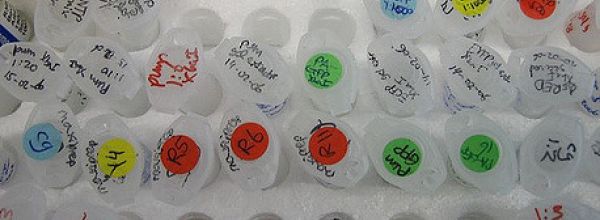Greetings,
I’m a research student and I’m having a lot of trouble in finding the right antibodies for my study, because I need both monoclonal and polyclonal. And I need to start addressing some other international scientists. The problem is that I don’t know how to address the situation. If they indeed have antibodies that I need for my work, how can I ask for them? Do people usually supply their antibodies for other studies “just like that”?
Ana Swartz
Dear Ana,
First of all, the answer to your philosophical question. Science is a collaborative endeavor. If you write about reagents in a paper, you assume that people will ask to share them. Sharing them is in the authors’ interests, too. The requesters will cite their paper, indirectly confirm their findings, and spread their good reputation – and science is all about the reputation. You are a PhD student today, postdoc tomorrow, and a PI some time later, and they may need your favor one day.
Let us assume that you found an article where the authors use antibodies perfect for your task. Make sure that they have made the reagent and not borrowed it from somebody, as they will not have the right to share it.
Now about the practicalities. The article, where you found the antibody, cites one or more “corresponding author”, usually with an e-mail address. That is to whom you write. More than one corresponding writer means that you have to find the most senior one, which is usually the last author.
You write your e-mail along the lines:
Dear Professor Surname*,
My name is Ana Swartz , I am a research student at Y University. I have read your excellent** article “Title here” in the “Journal of X Science”, where you used antibodies X for Y protein (or plasmid, or cell line). I am trying to detect the protein Y in my samples using western blot/ to complement a mutation/check expression in this cell line. I wonder if you can share some of your reagent.
I am willing to reimburse your shipping expenses, if necessary.
Sincerely yours,
Ana Swartz
If the reply is positive, you will discuss the details:
- Method of transfer;
- Expense account. If you are asking something, which can be send in an envelope, they may forgo the costs. Rich labs can sometimes send you antibodies on dry ice for free.
- Material transfer agreement (MTA). This is an agreement that defines the rights of the providers and the recipients (in this case the authors and the student) with respect to the antibody and any derivatives of that antibody. Ask your supervisor about who in your institute is responsible for dealing with intellectual property rights, but don’t be scared;
Of course, there is no guarantee that they would send the reagent, not out spite, but maybe they have run out of it. Alternatively, the person, who made the reagents, moved on and nobody can identify anything that belonged to him, as his handwriting is unintelligible. That is why it is better to use recent papers. Although I did get 15 year old antibodies and they worked.
In the worst-case scenario, you will not get a reply or get a negative answer. Then you are where you started. If this happened, you can try other papers and other groups.
If this fails, you can try University of Iowa hybridoma bank, where you can get supernatant of monoclonal-producing cultures at a low cost. For polyclonal antibodies you can try a company, which maintains antibodies catalogue, such as Abcam. Even in cases where your scientific contact runs out of antibodies you need, check if the company still has some.
If you need a plasmid, you can go to the public repositories, such as Addgene. If they have the plasmid, you will definitely get the positive answer and the plasmid in a very good condition for a small fee.
Good luck!
Sincerely yours,
Aunt Yersinia.






